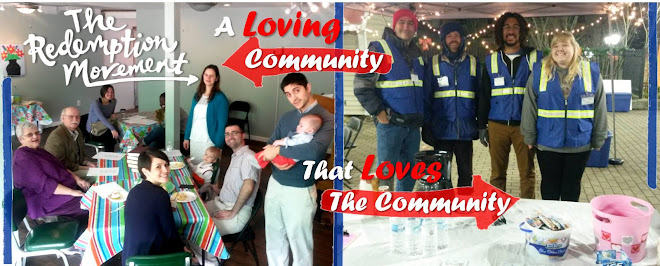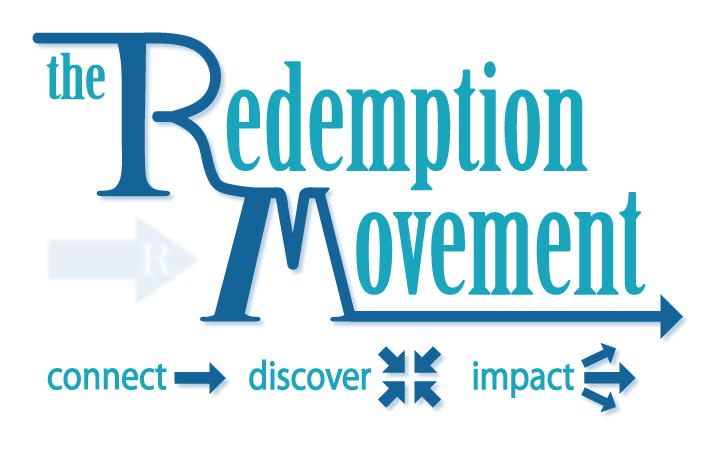Big news for #OneontaRides: a car has been donated to the cause! And not just any car, but a 2004 Ford Taurus station wagon. It’s a vehicle that suits our needs much better than the old Mercury Grand Marquis that we’ve used since day one. Consider the following advantages:
Newer and Less Miles
Overall, the station wagon is in much better shape. Sure, it needs some repairs, but it has a lot more life left in her than the 22-year old Mercury. Continue reading blog on donate.theredemptionmovement.org >>
Tuesday, June 13, 2017
Tuesday, June 6, 2017
What’s it Mean to Be Lost? Everything to God!
An Anchor sermon preached by Kaler Carpenter of The Redemption Movement, June 4th, 2017.
Podcast on AnchorOneonta.com:
Facebook Live video:
It’s interesting to me that we live in a post-Christian world that no longer believes in sin, yet there are “cultural sins.” One big cultural sin that I want to open with by looking at: the sin of labeling others.
The idea here is that, our society has become so individualistic, that it’s now totally up to the individual to define their experience and determine who they are. And therefore, any outside attempt to label a person contrary to what they feel they are, why, that’s oppressive, insensitive, and a “cultural sin.”
For those who hold to a Biblical worldview, it can be challenging to operate in such a fluid and individualistic culture. Primarily because the Bible has zero problem labeling people--(and newsflash, so was pretty much all of human history up until the postmodern era).
The Biblical worldview is extremely black and white. Consider with me just a few examples of how the Bible doesn’t throw any punches when it comes to labeling people:
You’re either saved, or unsaved.
You’re either righteous, or unrighteous.
You’re either wise, or foolish.
You’re either a Jew, or a Gentile.
You’re either a believer, or a nonbeliever.
You’re either holy, or a sinner.
You’re either found, or lost.
You’re either righteous, or unrighteous.
You’re either wise, or foolish.
You’re either a Jew, or a Gentile.
You’re either a believer, or a nonbeliever.
You’re either holy, or a sinner.
You’re either found, or lost.
Now, in light of how sensitive the world is about labels, how then is a Christian supposed to hold to and communicate this black and white worldview? Especially when it comes to our Christian witness? Three quick tips:
- For starters, I think that those who hold to this Biblical worldview should be aware of how such a worldview may be misunderstood and interpreted negatively by someone who doesn’t share it or isn’t familiar with it.
- Secondly, in order to have a good Christian witness, we need to respect and try to understand worldviews that are different than our own. Empathy goes a long way.
- Thirdly, the Christian worldview should be communicated in a such way that’s both loving and doesn't compromise the truth.
Thankfully, the theology of scripture is rich enough to achieve this. To show you this, I want to look at the Biblical concept of “lost.”
Concerning “lost,” consider this: if you engage in conversation with someone that’s unfamiliar with the Bible and you say in Christianese, “Those people are lost,” they might interpret that to mean something negative or judgmental, like “those people are stupid.” After all, who gets lost today? Only people who aren’t smart enough to read a map or use GPS. (btw, I still get lost even with GPS).
But, when the Bible talks about “the lost,” it’s doing so to communicate value and hope. Jesus explains just how much a lost person means to God in a short and powerful parable.
Or suppose a woman has ten silver coins and loses one. Doesn’t she light a lamp, sweep the house and search carefully until she finds it? And when she finds it, she calls her friends and neighbors together and says, ‘Rejoice with me; I have found my lost coin.’ In the same way, I tell you, there is rejoicing in the presence of the angels of God over one sinner who repents. -Luke 15:8-10 (NIV)The woman loses a silver coin, or a denarius. This is equivalent to a day’s wage. So, considering how the woman only has about 10 day’s worth of coins to her name, and that one-room houses built in first century Palestine typically didn’t have windows (thus why a lamp was needed), you get the impression that this woman wasn’t all that wealthy, like a peasant living paycheck to paycheck. Like, if she doesn’t find this coin, her family won’t eat. So there’s some super intense searching going on here.
To say that this lost coin was valuable to the woman is an understatement.
This is significant because in this parable, the woman represents God (which is significant in its own right), and the coin represents sinners--those who are lost and away from God. In context, Jesus tells this parable in response to the religious authorities who were accusing him of eating with sinners, a crime that deserved to be punished (Dt. 21:18-21).
Now the tax collectors and sinners were all gathering around to hear Jesus. But the Pharisees and the teachers of the law muttered, “This man welcomes sinners and eats with them.” Then Jesus told them this parable. -Luke 15:1-3 (NIV)Jesus responds by teaching 3 parables in a row (the lost sheep, the lost coin, the lost son) that each say the same thing: these sinners whom I eat with are lost, so they are valued by God; enough so that God uses every resource at His disposal to seek them out and find them.
The parable we read says that the woman lit the lamp, swept through the house, and looked carefully. It’s a picture of thoroughly looking under the couch cushions and sifting through the junk drawer. But the historical context actually makes this search more intense. The floors back then were essentially beat down dirt and dried reeds, and it was dark, and metal detectors weren’t invented yet. So we’re talking needle in a haystack. Perhaps the woman was using the lamp to hopefully catch a gleam of light reflecting off the silver.
This totally blows the minds of the Pharisees Jesus was addressing, because in their worldview, sinners were despised by God, tax collectors were enemies of Israel, and both groups should be avoided at all costs. Yet, here Jesus is, receiving sinners, eating with them, even, drawing near to them!
By the way Jesus conducted his meals, He was announcing to the Pharisees something new and scandalous about the Kingdom of God. However, for the Gentiles, for the sinners, for you and me, this simple action is a declaration of good news!
Social rules of dining mirrored the sectarian structures of the first century in both Jewish and Greco-Roman life. Who one ate with was a serious matter.In fact, when Jesus comes on the scene and announces that He is the Son of God, what does He say the very purpose of His mission is? Luke 19:10, “For the Son of Man has come to seek and to save that which was lost.”
Yet Jesus uses the table to flip insider and outsider boundaries. For the Jews of Jesus’ day, meals bound participants to one another by covenants established between religion, persons and states. Jesus’ meal practices contested, transformed, and reinterpreted social mores. Jesus cultivated community at the table, modeling other-worldly availability. Jesus reclined at table with doubters, cowards, and betrayers, and called them friends.
Jesus used the table to express God’s friendship with religious outliers. Jesus’ choice of table guests represents God’s coming world, a foreshadowing of the feast at the kingdom of God (Rev. 19:19). -Church as Movement
By Jesus incorporating seeking the lost into the mission of the Kingdom of God, now all those who are followers of Christ are given the same mandate “to seek and save the lost.” This means valuing lost enough to befriend them, and to seek them out with the same sense of fervor as the poor woman looking for her lost coin. This is the driving motive for Christians being called as missionaries to their communities.
Compare this to the old covenant. In fact, this idea of sinners being lost is totally foreign to the Jews, which is why you’ve probably never met a Jewish missionary.
No Pharisee had ever dreamed of a God like that. A great Jewish scholar has admitted that this is the one absolutely new thing which Jesus taught men about God---that he actually searched for men. The Jew might have agreed that if a man came crawling home to God in self-abasement and prayed for pity he might find it; but he would never have conceived of a God who went out to search for sinners. We believe in the seeking love of God, because we see that love incarnate in Jesus Christ, the Son of God, who came to seek and to save that which was lost. -William BarclayAccording to Jesus, God’s heart for the lost is clearly seen in Luke 15:
- When the woman found her lost coin, she rejoiced and threw a party.
- When the Shepherd found his lost sheep, he rejoiced and threw a party.
- And when the prodigal son returned, the father rejoiced and threw a banger of a party.
The joy of God and all of the angels, when ONE SINNER comes home, is like the joy of a home when a coin which has stood between them and starvation has been lost and is found.Christians, this reality should drive our mission. If our worship, prayer, and preaching is to please God, then we should work even more so to take seriously the very thing that gets God to experience unbridled joy and turn Heaven into a party--finding and saving the lost!
What’s this look like to take the mandate of seeking and saving the lost seriously?
For starters, it means actually being intentional about stepping outside of your comfort zone by inviting and sharing a table with sinners, just like Jesus did. I for one take this mandate very literally and actually spend my Friday nights, literally driving my car around Oneonta’s streets seeking the lost.
Secondly, it means taking seriously every relationship we have with the lost by trying to find ways to bring the Good News of the Gospel into it--in a credible and loving way. For example, remember how I opened by sharing advice on how to talk to postmoderns? Friends, I think about this all the time and I am constantly looking for ways to improve how I share the Gospel.
And this may sound crazy, but I even go so far as to review video footage of conversations I’ve had with the lost so I can go back and improve my Christian witness. Plus, The Redemption Movement has meetings where we review these videos together so we can all learn how to better share the Gospel. It’s quite fun actually.
Now, as crazy as that sounds, consider how much football players review tapes, study playbooks, and train their bodies like crazy. To fans, this devotion is admired. And here’s the thing, all of that crazy training for sports and mountains of money spent on it; it’s all for a game. Played for a trophy that will rust, for a championship that people will forget about, and in an expensive stadium that will eventually get demolished for a better one.
Paul in the Bible pretty much says the exact same thing in 1 Corinthians by referring to the mission of God as race--a race that all Christians are running!
Do you not know that in a race all the runners run, but only one gets the prize? Run in such a way as to get the prize. Everyone who competes in the games goes into strict training. They do it to get a crown that will not last, but we do it to get a crown that will last forever. Therefore I do not run like someone running aimlessly; I do not fight like a boxer beating the air. No, I strike a blow to my body and make it my slave so that after I have preached to others, I myself will not be disqualified for the prize. -1 Corinthians 9:24-27 (NIV)I want to close by premiering a new #OneotaRides video from giving a ride last month. In it, I explain what lost means to a student.
I want to show you this video to motivate your own sense of mission, and, like a football player watches tape in preparation for the big game, it’s my hope that this somehow equips and motivates you and Anchor for the mission of sharing the Gospel with the lost.
Before I play the video, let me give you some background. This is a ride given to a young man who stopped by our Kindness Station tent last month for the Senior Bar Crawl and he was very happy to meet us and introduce himself. He mentioned that we’ve provided safe rides home to his girlfriend all throughout the past school year, and how he was very thankful we were looking out for her.
Eventually, the young man requested a ride home. During the ride, we got to talking about faith and religion. He really wanted to know what our motivation was for serving others. This inquiry led to a powerful explanation about what it means to be lost.
Subscribe to:
Posts (Atom)












